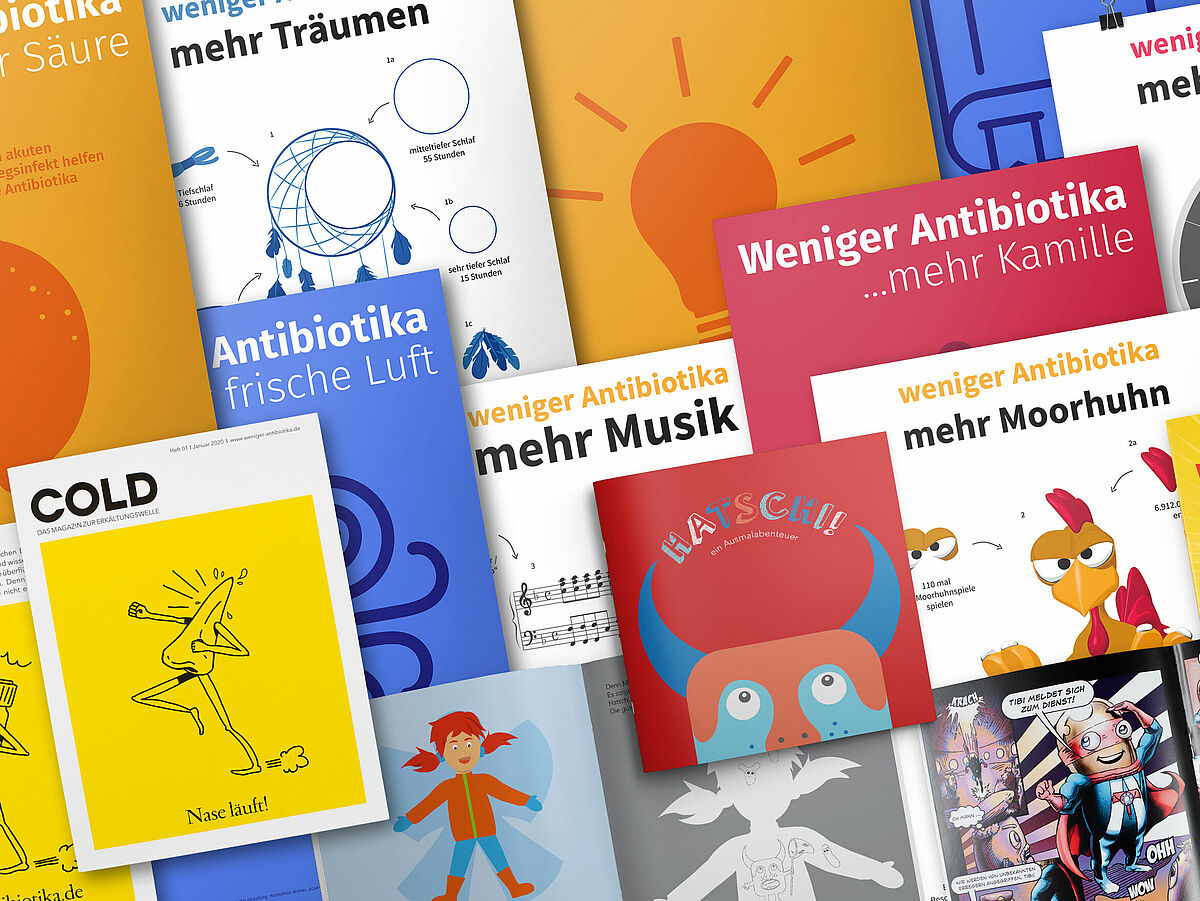The excessive use of antibiotics in outpatient care is a major contributor to the increasing antibiotic resistance worldwide. The CHANGE-3 project aims to contribute to reducing these over-prescription figures with research as well as intervention measures with regard to doctor-patient communication.
In Germany, 80 to 90 % of antibiotics in human medicine are used in the outpatient sector. In 2014, more than 39 million antibiotic prescriptions were issued in the outpatient sector for insured persons of statutory health insurance alone - most of them by general practitioners. By far the most frequent reason for this is acute respiratory tract infections (ARTI). Although it is now well known among specialists and lay circles that ARTIs are mostly caused by viruses and are usually self-limiting, antibiotics are still prescribed too frequently for ARTIs - in Germany, in about 40 % of cases. One explanation for this prescribing "against better knowledge" is the presumed patient expectations with regard to antibiotics, which are regularly overestimated by doctors.
As part of the CHANGE-3 project, a broad publicity campaign took place in the two model regions of Baden-Württemberg (BW) and Mecklenburg-Western Pomerania (MV). The overarching goal of the planned intervention was good interaction and communication with joint decision-making between the practice team and patients. A successful consultation with subsequent therapy recommendations (e.g., also about symptomatic treatment) should be a joint decision above the value of issuing a prescription. The goals are to reduce the number of antibiotic prescriptions for acute respiratory tract infections (ARTI) and, if the use of antibiotics seems unavoidable due to medically justifiable criteria, to avoid the use of broad-spectrum antibiotics for ARTI.
The population (insured persons, affected patients, parents, family/relatives) was sensitized to the problem of antibiotic overuse via various media approaches adapted to the target group. The intervention messages encourage and enable patients (in the sense of patient empowerment and promotion of health literacy) to get involved in the decision-making process with the doctor better and more purposefully than before. The benefits of restrained antibiotic use for the individual (in terms of fewer adverse drug reactions) as well as the enormous benefit for the community (in terms of less resistance) are addressed.
Project partner:
- UM Rostock
- AQUA Institute Göttingen
- UK Heidelberg
- Wismar University of Applied Sciences
Cooperation partner:
- AOK BW
- AOK North-East
- General Practitioners' Association BW
- General Practitioners' Association MV
- KV BW
- KV MV
- IMBI

